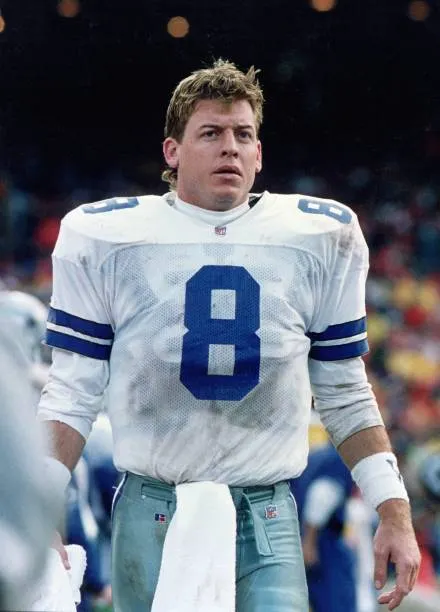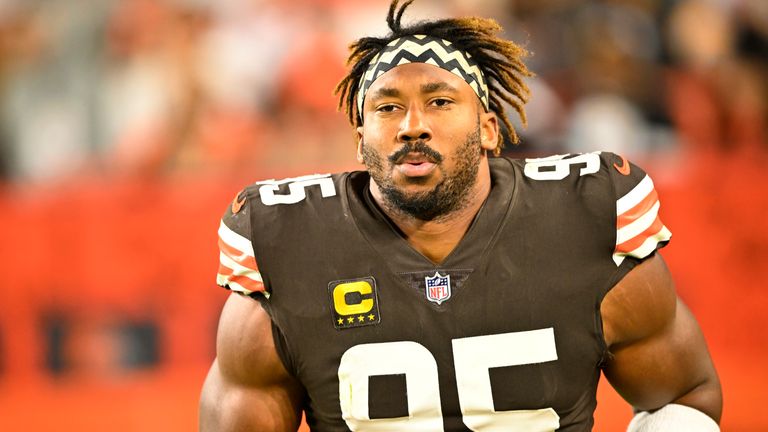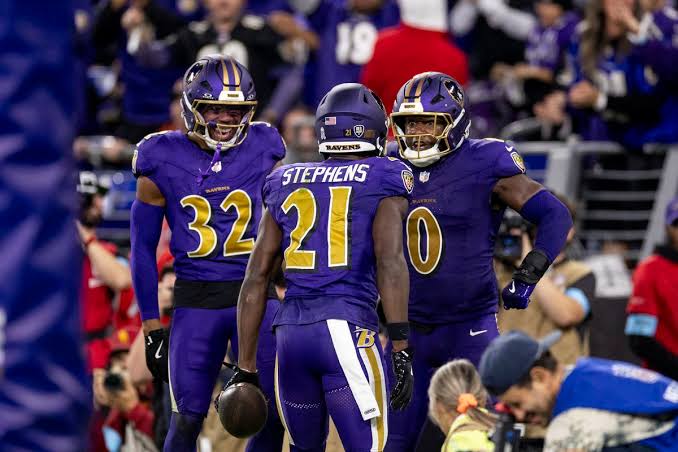Legendary Dallas Cowboys quarterback Troy Aikman recently made a compelling argument about the NFL’s obligation to ensure correct officiating, particularly in an era where legalized sports gambling has become a multi-billion-dollar industry. His statement—“There’s a lot of money that’s changing hands with these calls. I think that we owe it to the fans that we get it right”—highlights a critical issue in modern sports: the intersection of officiating, fan engagement, and gambling.

With sports betting now legal in most U.S. states, the financial stakes of every call—or missed call—have never been higher. A single questionable holding penalty, a controversial pass interference ruling, or an incorrect spot on a fourth-down play can swing point spreads, alter prop bets, and cost bettors millions. The NFL, as the most-watched and most-bet-on sports league in America, has a responsibility to minimize human error in officiating.
This raises several key questions:
-
How much does officiating impact gambling outcomes?
-
What steps has the NFL taken to improve accuracy?
-
Are technological solutions like expanded replay and AI-assisted officiating the answer?
-
Should the league prioritize gambling fairness as much as competitive fairness?
In this in-depth analysis, we’ll explore why Aikman’s comments resonate with today’s NFL fans, the financial implications of bad calls, and whether the league is doing enough to protect the integrity of the game—and the bets placed on it.
The Rise of Legalized Sports Gambling and Its Impact on the NFL
Since the U.S. Supreme Court struck down the Professional and Amateur Sports Protection Act (PASPA) in 2018, legal sports betting has exploded. According to the American Gaming Association, Americans legally wagered $119.84 billion on sports in 2023, with the NFL accounting for the largest share.
Key Gambling Statistics:
-
50+ million Americans now legally bet on sports.
-
NFL games attract the most bets, with Super Bowl LVIII seeing an estimated $1.5 billion in legal wagers.
-
Prop bets (player performance wagers) have surged, meaning more outcomes hinge on individual plays.
With so much money at stake, the margin for error in officiating has shrunk dramatically. A single bad call can:
-
Swing the point spread (and thus cover bets).
-
Alter over/under totals.
-
Void or cash player prop bets (e.g., a questionable offensive pass interference negating a touchdown).
Aikman’s point is clear: The NFL can’t afford to treat officiating mistakes as mere “human error” when billions in bets hinge on every call.
High-Profile Officiating Blunders That Cost Bettors Millions
Recent NFL history is littered with controversial calls that had massive gambling implications:
1. The 2018 NFC Championship No-Call (Rams vs. Saints)
-
The Play: Late in the game, Rams CB Nickell Robey-Coleman committed a blatant pass interference against Saints WR Tommylee Lewis—no flag was thrown.
-
Gambling Impact: The Saints were -3.5 favorites; the no-call likely cost them the game (Rams won in OT). Bettors who took New Orleans lost millions.
2. The 2023 Lions vs. Cowboys Controversial Penalty
-
The Play: A late-game penalty on the Lions for an illegal touching call (debated by analysts) negated a potential game-winning two-point conversion.
-
Gambling Impact: Dallas was -5.5; the Lions would have covered with a successful conversion. The call shifted millions in bets.
3. The “Tuck Rule” Game (2001 Patriots vs. Raiders)
-
The Play: A controversial ruling on a Brady fumble (deemed an incomplete pass) helped the Patriots advance in the playoffs.
-
Gambling Impact: Had the call gone the other way, Raiders bettors would have cashed instead of Patriots backers.
These examples show how a single officiating decision can alter millions in wagers—something the NFL can no longer ignore.
Is the NFL Doing Enough to Improve Officiating?
The league has taken steps to address officiating concerns, but critics argue it’s not enough.
Current NFL Officiating Improvements:
-
Expanded Replay Review: Since 2019, pass interference calls (and non-calls) were briefly reviewable (though this was later reversed due to inconsistency).
-
SkyJudge Proposal: A “booth official” to correct obvious missed calls in real time (still not fully implemented).
-
AI and Tracking Tech: Next-Gen Stats and optical tracking help with ball placement, but human refs still make subjective calls.
Where the NFL Falls Short:
-
Inconsistent PI Calls: Pass interference remains one of the most inconsistently called penalties, directly affecting totals and spreads.
-
Spot Challenges: Ball placement disputes (like the infamous 2022 Colts vs. Browns game) still rely on imperfect camera angles.
-
Late-Game Officiating: Refs often “swallow the whistle” in crucial moments, leading to unpredictability for bettors.
Aikman’s argument is that technology exists to get more calls right—so why not use it?
Potential Solutions: How the NFL Can “Get It More Right”
If the NFL truly wants to protect the integrity of the game—and the billions wagered on it—here are some steps it should consider:
1. Full-Time Professional Referees
-
Currently, most NFL refs have other jobs in the offseason. Full-time officials could improve consistency.
2. Real-Time SkyJudge for All Games
-
A booth official with access to all angles could instantly correct obvious mistakes without slowing the game.
3. Automated Ball-Spotting & First-Down Tech
-
Tennis uses Hawk-Eye for line calls; the NFL could implement similar tracking for first downs and spots.
4. Transparency in Officiating Reports
-
The NBA releases Last Two Minute Reports; the NFL should do the same for all controversial calls.
5. Gambling-Specific Protections
-
Partner with sportsbooks to identify bets most affected by questionable calls and adjust rulings accordingly.
The NFL Must Adapt to the Gambling Era
Troy Aikman’s comments reflect a growing sentiment: The NFL can no longer treat officiating as an imperfect art when billions of dollars in bets depend on its accuracy. While human error will always exist, the league has the tools to minimize mistakes—it just needs the will to implement them.
As legalized gambling continues to grow, the NFL must prioritize fairness for bettors as much as fairness for teams. Whether through expanded replay, AI-assisted officiating, or real-time corrections, the league must ensure that games are decided by players—not referees.
Because in today’s NFL, a bad call doesn’t just affect the scoreboard—it affects the wallets of millions of fans. And as Aikman said, the league owes it to those fans to get it right.



